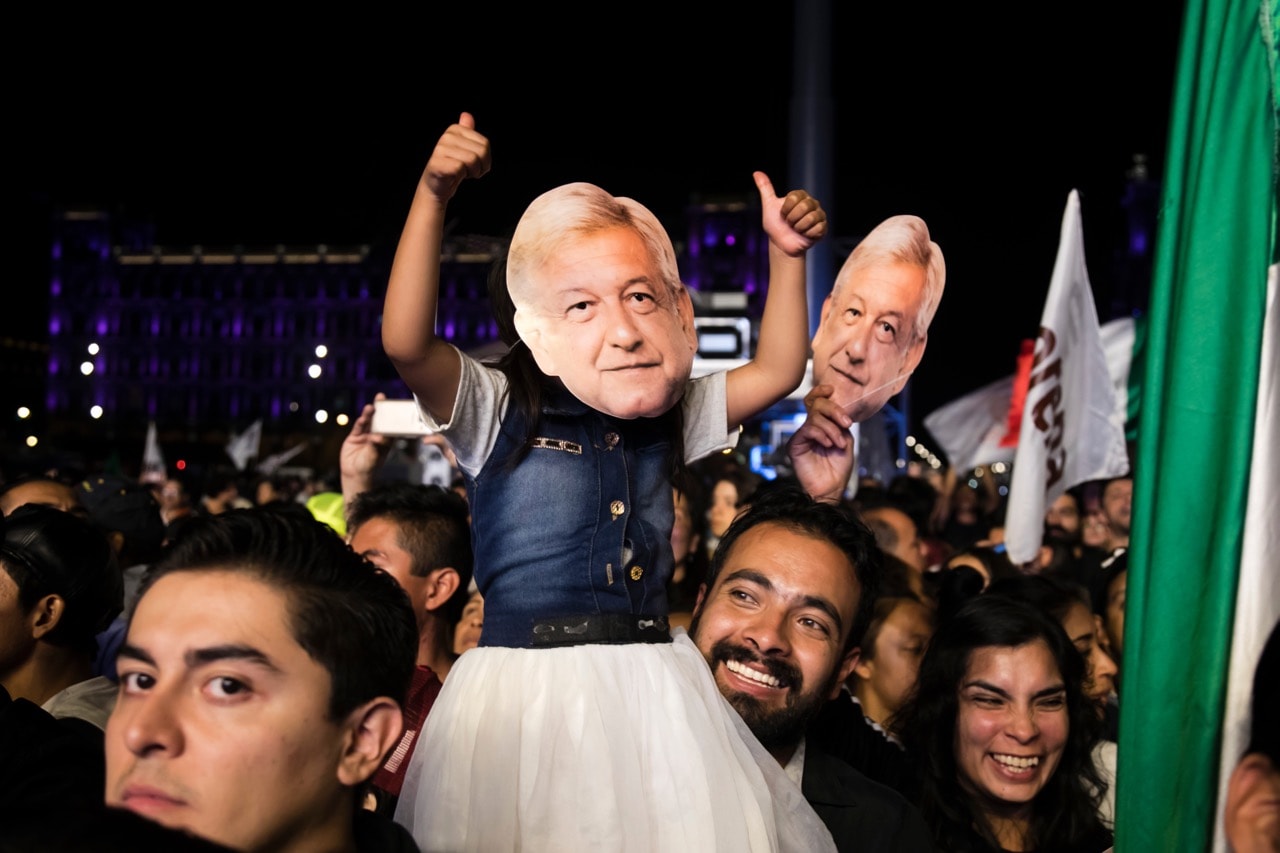A roundup of key free expression news in the Americas, based on IFEX member reports.
Several significant free expression milestones were attained in the region in August. National elections in Mexico, won by Manuel López Obrador of the “Together We Will Make History” (“Juntos Haremos Historia”) coalition, opened a window of hope that the new government may deal with the serious freedom of expression and press freedom issues in the country.
Mexico exhibits the most complicated free expression situation in the region. With 12 journalists killed in 2017 and seven in 2018, Reporters Without Borders (RSF) once again situated the country among their list of 50 states with the lowest levels of press freedom in the world. The situation regarding this human right in the country is a pressing and recurring issue for civil society.
The question we at IFEX ask ourselves is: How will things be under the new government? IFEX consulted a number of Mexican activists and human rights defenders to gain their perspectives regarding the new administration and why it is that they believe the country will be unable to pull itself out of its current spiral of violence.
Their predictions do not bode well: in addition to recognising that the recent election was the most violent in the country’s history, with more than 100 politicians killed and dozens of attacks on journalists and observers, the analysts IFEX consulted are sceptical regarding what the new government will be able to do to change the situation. The activists’ views are based on the fact that attacks and threats against media are ongoing, as are the high levels of impunity when it comes to solving these crimes.
A prime example is the case of journalist Carmen Olsen, who continues to be targeted with threats and intimidation originating from public officials even though she has been covered by measures provided by the Journalist Protection Mechanism for five years.
Despite this, Mexican activists are not giving up, and as a result they have achieved small victories. On 31 July, the United Nations recognised the rights violations suffered by journalist Lydia Cacho, perpetrated by the Mexican authorities. The ruling came as a result of a petition for review of Cacho’s case filed by IFEX member ARTICLE 19 in 2014.
In Colombia, journalist Valentín Rúa Tezada was assassinated on 3 August in the southwestern area of the country. The journalist’s murder was the most serious in a series of incidents and threats that have resulted in an increasingly hostile climate for the media.
For the Inter American Press Association (IAPA), Tezada’s assassination represents a “setback” in the protection of the practice of journalism in the country. The organization demanded that the authorities conduct a “rapid and transparent” investigation into the case in order to bring those responsible to justice.
Despite this distressing news, activism in action was also seen in the country: The Karisma Foundation launched the latest edition of its “Alerta Machitrolls” campaign, an on-line initiative employing humour to identify behaviours that represent attacks on the rights of women to express themselves and share opinions on the Internet. The campaign and its technology tools are designed to generate a counter-discourse to on-line violence directed against women and gender dissidents.
In Venezuela, the country’s economic crisis and strong pressures continue to suffocate the press. In 2018 alone, a total of 12 dailies have reduced the days on which they circulate due to a lack of paper stock. IPYS Venezuela determined that at least 47 newspapers have either temporarily or permanently suspended circulation since 2013 owing to difficulties in obtaining production inputs.
In addition, three months have already passed since the shameful and arbitrary detention of Twitter user Pedro Jaimes for publicising information about a route taken by the presidential airplane. IFEX-ALC continues to issue demands for his immediate release.
Meanwhile, IAPA and RSF sent a delegation to Nicaragua and found that it is experiencing serious setbacks to press freedom and freedom of expression, a result of the brutal repression being exercised by the government of Daniel Ortega against demonstrators who have been demanding political changes in the country. IAPA and RSF have called on the Nicaraguan government to stop the violence, to investigate the attacks and punish those responsible and to implement the precautionary measures granted to journalists and their families by the Inter-American Commission on Human Rights.
Meanwhile, a report by the Committee to Protect Journalists (CPJ) revealed that Ortega’s control of the media is slipping even as the government crackdown has intensified.
In the United States, hundreds of media outlets – fed up with constant attacks in a country that used to be open to respectful discourse around a diversity of opinions – united to publish a 16 August editorial demanding that the government desist from polarising the public with its assaults on the press, and highlighting the fundamental role of the media in a democracy.
While the media are uniting, the Trump administration has not stopped antagonising the free press: a CNN journalist was denied access to the White House for asking “inappropriate questions”, while Reality Winner, a woman who disclosed confidential government information, was sentenced to 63 months in jail, the longest sentence ever imposed for this type of action.
In Brief:
Brazil: Journalist Marlon de Carvalho Araújo was assassinated, the fourth journalist killed in the country this year.
Uruguay: Ten years after the approval of the Access to Public Information Law, Cainfo is proposing amendments in an effort to continue improving government transparency.
In Bolivia, President Evo Morales wants to create a “law against lying”, which social organisations are opposing.
